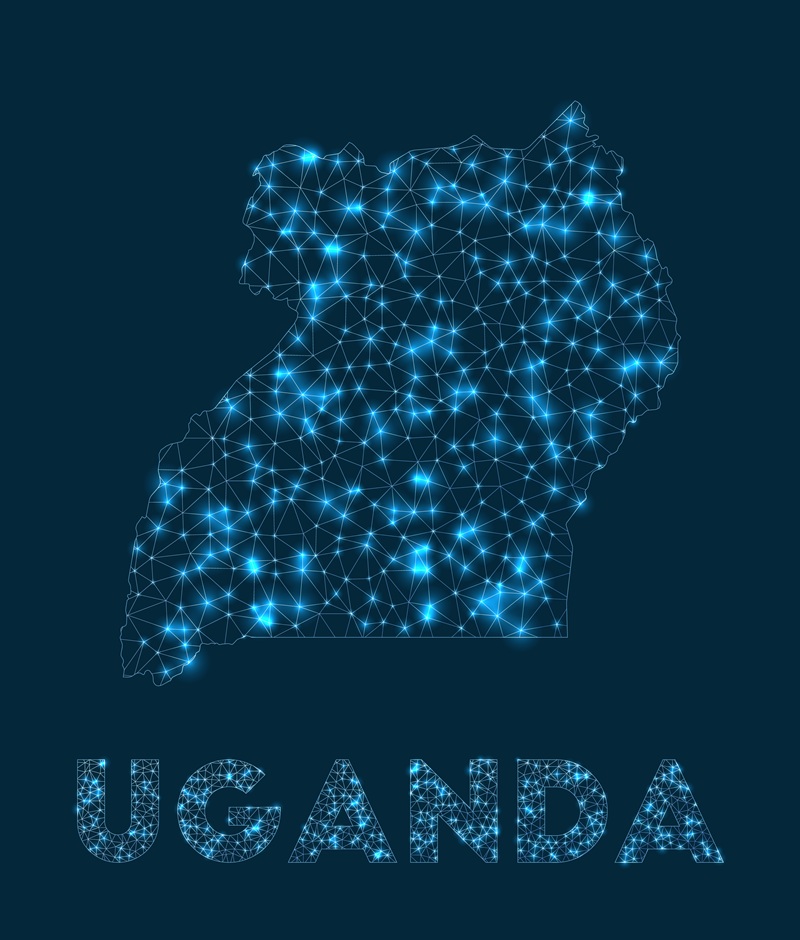Blockchain can not only play a big role in supporting the public sector, but it can be a powerful weapon in the fight against corruption and fraud. Find out how the technology could be put to good use by African governments to drive transparency and efficiency.
There are usually some telling signs that an emerging technology is about to hit the mainstream – a steady stream of related news begins to appear online and in newspapers; the technology receives public backing from some high-profile figures; and it becomes a frequent topic of conversation at industry conferences and events.
Such momentum has certainly accompanied blockchain so far in 2018 throughout Africa. But what could be unusual is the role that governments and public sector organisations could play in raising its profile further.
Typically, the development and application of emerging technologies is first championed by the private sector before the public sector tends to take notice. Given the potential use cases for blockchain align so closely with many public services, this is a technology where the public sector cannot afford to be sat in the passenger seat.
A force to be reckoned with
Globally, a handful of public sector organisations are running pilots and trials examining the application of blockchain in areas such as voting, land registry, tax filing, healthcare and identity management.
This has prompted some African governments to also look at how they can get started with blockchain. In Kenya’s case, this has led to the creation of a taskforce dedicated to leveraging emerging technologies – with a particular focus on blockchain and Artificial Intelligence (AI).
The taskforce has been mandated to publish a roadmap for distributed ledger and AI for the country for the next fifteen years, with the primary objective of creating new jobs in Kenya.
In February of this year, Kenya’s Information, Communication and Technology Cabinet Secretary Joe Mucheru named former ICT Permanent Secretary Dr. Bitange Ndemo to head the 11-member taskforce – which also includes Safaricom’s Head of Corporate Affairs Steve Chege and Juliana Rotich, a tech entrepreneur who is best known as one of the co-founders of BRCK and Ushahidi.
Dr. Ndemo, who was influential in transforming in Kenya’s ICT sector while permanent secretary from 2005 to 2013, believes now is the time for decisive action from African governments: “If countries don’t begin to build new capabilities and capacities for these technologies then they will be bystanders,” says Dr. Ndemo. “Africa missed the first, second and third industrial revolutions, but we have a real opportunity to be a part of the Fourth Industrial Revolution.”
Digital transformation in Kenya is paving the way for the application of emerging technologies like blockchain.
“ If countries don’t begin to build new capabilities and capacities for these technologies then they will be bystanders.”
Dr. Ndemo, Chairman of Kenya’s Blockchain and AI Taskforce
For example, Kenyan citizens can now access up to 200 government services online – at Huduma Centres (locations where citizens can access a range of public services online) or on their mobile devices. The government has made a further commitment to widen access to services for citizens from their homes or business premises, and is also exploring the use of biometrics.
“One of our first projects will be creating a trusted identity platform, which would provide us with biometrics on an individual. This removes the need to have multiple data sets to verify a person for a transaction,” says Dr. Ndemo.
Creating a trusted identity platform is firmly the public sector’s responsibility, believes Dr.Ndemo: “Everybody engages with the public sector in their everyday life. We need to create an enabling environment – linking together other emerging technologies such as Artifical Intelligence (AI), Internet of Things (IoT) and Big Data Analytics.”
Dr. Ndemo sees blockchain as having an immediate impact in several key areas over the next five years.
Firstly, he believes blockchain can be instrumental in improving food security by using the technology to tighten supply chains. In Sub-Saharan Africa, an estimated 50% of fruits and vegetables, 40% of roots and tubers and 20% of cereals, legumes and pulses are lost before they even hit the market. Blockchain solutions can drive transparency across a supply chain and be used to track and trace food products – potentially helping to solve post-harvest losses.
Likewise, Dr. Ndemo sees blockchain being a vital tool for the logistics industry, where it can be again applied to drive transparency and improve tracking.
This in turn will help stimulate intra-regional trade – with trade amongst African countries currently being amongst the lowest in the world. “To improve this we need better connectivity and traceability to improve the flow of materials and goods across the region,” says Dr. Ndemo.
Mobilising public services
Uganda is another African country that is mobilising its public and private sectors to take advantage of the blockchain opportunity.
In May, the country was home to a major new blockchain conference that brought together academia, policymakers, entrepreneurs and industry leaders from across the region and globally.
Organised by the Blockchain Association of Uganda, the 2018 Africa Blockchain Conference was opened by the Ugandan President Yoweri Kaguat Museveni, who welcomed the use of blockchain technology in boosting the local economy.
According to Kwame Rugunda, Chairman of the Blockchain Association of Uganda, the conference provided a platform for Uganda and the rest of the region to be a part of the global conversation on blockchain.
“The level of political leaders that attended really helped raise the profile of the event. We also had representatives from the central bank and from the largest global crypto exchange,” he says.
“What is apparent from all these key stakeholders is that there is a hunger and deep desire to know and understand what blockchain means for Africa.”
The Blockchain Association of Uganda was established earlier this year to create a credible vehicle for driving standards for blockchain across industries in Uganda. The membership organisation also aims to make blockchain-related resources available to government and public-sector consumers.
“There has been some great misunderstanding around cryptocurrencies across Africa. We thought it was critical for those with the skills and knowledge on cryptocurrencies and blockchain to step forward and add credibility. We want to demonstrate where these technologies can add value to our economy by working alongside the government,” says Rugunda.
Rugunda says that businesses and governments across Africa are still coming to terms with the implications of blockchain and cryptocurrencies: “The tech community has a good understanding of these technologies which is now permeating into the rest of society. Everybody is asking: what can blockchain do for my industry?”
Access to information and resources will be important in stimulating greater investment in blockchain, but Rugunda feels the technology could be poised for quicker adoption than other emerging technologies: “With blockchain, you’re riding over existing infrastructure. The investment is more in software and building platforms, which doesn’t compare to the cost of deploying fibre or building mobile towers,” he says.
There is no lack of incentive for either private or public organisations to begin embracing this technology, says Rugunda: “We are convinced that this technology has come at the right time for Africa. The benefits of adopting this technology at its nascent stages will deliver long-term gains for the region. We’ve traditionally been only consumers of global innovation, but we need to learn from our experiences with that and embrace a technology that can define our future.”
Fighting fraud and corruption
The Sierra Leone elections in March alerted the media to a compelling use case for blockchain – even if the project did end up marred in controversy.
A Swiss-based blockchain start-up called Agora claimed to have facilitated the first blockchain-based election – a claim subsequently contested by the country’s National Electoral Commission (NEC). It later emerged that the start-up had acted as an international observer at 280 of the country’s 11,200 polling stations, recording the votes on its blockchain as part of a proof-of-concept experiment. Even if the project was overshadowed by the hyperbole, it does highlight the interest in using blockchain to improve transparency in the electoral process – an enticing prospect for a region accustomed to controversial elections. “Blockchain technology gives government powerful tools to fight corruption both outside and within the government,” says George Etheredge, Research Analyst at Digital Transformation Practice for Frost & Sullivan. “Blockchains can accurately verify the identities of individuals while offering a method to register assets and track transactions, all of which can contribute to limiting the potential for corruption.”
Yet he predicts that the adoption ofblockchain-based solutions to prevent corruption could be slow: “Although blockchains do have the potential to limit internal government corruption and bring transparency to the public sector, these use cases are far less explored than those which allow governments to combat external corruption,” says Etheredge.
“One possibility is to use blockchain technology to track the tender process. A key barrier to adoption here is a misalignment of incentives: such a project would have to be implemented by government itself and thus constitute government voluntarily subjecting itself to further checks and balances.”
While the South African Reserve Bank has run a proof-of-concept trialling a distributed ledger technology-based wholesale payment system (see page 6) and the Tunisian government is using blockchain to boost its eDinar digital currency, African governments have overall been quiet on the blockchain front.
However, with the governments of Kenya and Uganda making the right noises, expect that to change soon.





